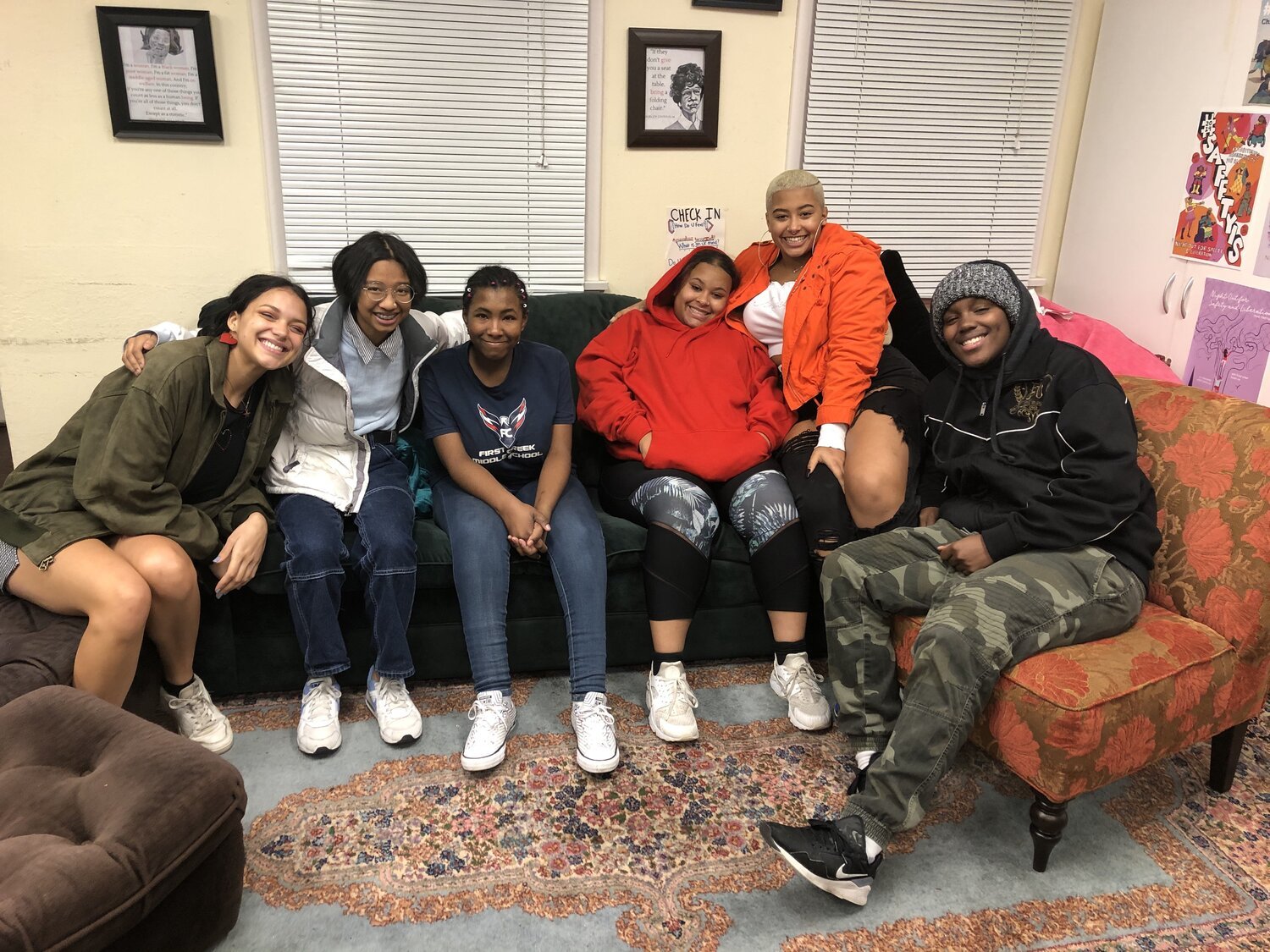Girls Advocacy & Impact Network (G.A.I.N.) Program
What?
The Girls Advocacy & Impact Network provides girls* in Washington state an opportunity to address issues related to juvenile justice, mental health, child welfare, housing and homelessness, education, and more. Girls leverage the collective influence of policymakers based on the prioritized needs identified by the chapter members. This could include speaking at events, testifying in a public hearing, appearing at fundraising engagements, writing, traveling, and training alongside Justice for Girls Coalition staff.
*youth who identify as female.
GAIN equips girls with the tools, support and skills they need in order to capably amplify their voices and effectively influence the policies that directly impact their lives. Our work, over the long term, contributes toward a world where girls and young women are no longer criminalized for the trauma they have experienced. Where we address the root causes – poverty, violence, racism and sexism – at the heart of the complex issues girls confront. Where we engage girls as drivers of policies, programs and practices directly impacting them.
Who?
GAIN is supported by The Justice for Girls Coalition, a non-profit organization with members from across Washington state. In 2015, JfG gained 501c3 status, formed a board and expanded the scope to include advocacy and training across multiple systems including school, mental health, health, housing, child welfare and juvenile justice. The org seeks to improve the status of girls in WA state, address the underlying conditions that perpetuate the adversity they face and pave pathways for a better future. Born out of that mission, the GAIN program gives girls a platform to be heard by offering avenues to engage in advocacy and train community stakeholders alongside JfG staff.
Specifically, GAIN seeks to support youth in Washington state who meet these eligibility requirements:
Identify as female
Are between 13-20 years old
Follow the strict norms and behavior guidelines to allow for an atmosphere of safety, anonymity, respect, and dignity for all members.
Attend as many monthly meetings as possible; Attend the events/meetings in which attendance is required
Commit to serve a one-year term (yearly cohorts)
Why?
Data show that many girls and young women in Washington are on a path for prosperity and well-being with the supports, connections, and resources they need to thrive.
However, when the data are pulled apart by race/ethnicity and other factors it shows that some young women endure a disproportionate share of hardships and face barriers that often arise at the intersections of structural inequalities such as gender, race, locality, poverty, ability and sexuality. There is also growing understanding of the developmental needs of girls. Yet across multiple systems, including schools, courts, child welfare, mental health/health, housing and law enforcement, many of the policies in place are not designed to support the healing and healthy development of girls and young women, and can perpetuate the biases that systems have historically held. As a result, a new approach to gender equity in policymaking is needed.
GAIN provides a space where girls work toward developing solutions to the main issues that are impacting their daily lives. They become the drivers of the change they wish to make and help inform the policy agenda built by the coalition’s Advocacy Member Group. This program builds the confidence of members and advances their leadership roles as they gain more skills. Additionally, it builds community will in awareness about such topics as intersectionality, implicit bias and girl- centered best practices.
How?
Our program mobilizes a state-wide network of girls in the form of geographically separated chapters who can rely on each other for support, create a sense of community and allow for the development of healthy girl culture. We work across chapters to develop issue and solutions statements that reflect the elected aims of the girls using the following methods:
6 meetings per year are Individual Meetings (internal members); ex. Issue and Solution Statement building with the other chapter members
4 meetings per year are Group Trainings (external guests/trainers), ex. Bring in outside trainers on topics such as Storytelling for Advocacy, Civics, and
1 annual, overnight retreat with all chapter members and adult facilitators
Program Goals
To ensure female identified youth have skills to do policy advocacy and train in girl- centered practices alongside Coalition staff
To provide female identified youth with adult role models who they trust and admire
To allow girls shared common experiences and to make connections across communities
To build community will in awareness about issues that affect girls

